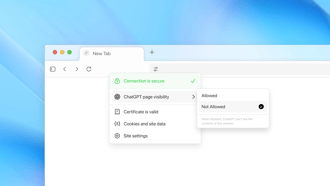Large Language Models (LLMs) have emerged as transformative tools in the AI landscape, enabling groundbreaking innovations across industries. These models, with their advanced capabilities to understand and generate human-like text, drive productivity, spark creativity, foster collaboration, and address complex challenges. Here, we’ll look at some real-world success stories, the impacts of these innovations, and the trends shaping the future of LLM adoption.

Enhancing productivity in software development
The software development industry thrives on efficiency and precision, and LLMs have quickly become indispensable allies in this space. GitHub Copilot, a prominent example, has revolutionized how developers write and debug code. LLMs are accelerating development processes by offering intelligent code suggestions, autocompletions, and real-time error detection. For instance, developers using GitHub Copilot have reported up to a 55% increase in productivity. This translates to faster project completions, reduced workloads, and the ability to tackle more complex challenges with fewer resources.
The impact extends beyond individual developers; entire teams are now rethinking workflows. LLMs reduce time spent on repetitive tasks, such as writing boilerplate code or troubleshooting syntax errors, allowing developers to focus on solving complex problems and innovating new features. Looking ahead, the role of LLMs in software development will deepen as these tools integrate more seamlessly into development environments. Future iterations may suggest solutions and predict long-term system performance, optimize for scalability, and even recommend architecture improvements. The continued evolution of LLMs will redefine collaboration and creativity in software engineering.
Transforming financial services
In the financial sector, accuracy and personalization are paramount. Companies like Intuit are demonstrating how LLMs can transform customer experiences and streamline operations. Intuit’s platforms, including TurboTax and QuickBooks, leverage AI to simplify complex financial tasks, such as tax filing and bookkeeping. By integrating LLMs, these tools provide users with real-time guidance, personalized financial advice, and automated document generation.

The impact of these advancements is profound. For small business owners and individuals alike, navigating the complexities of finance becomes significantly less daunting. AI-powered platforms reduce human errors, ensure compliance with evolving regulations, and deliver tailored recommendations that empower users to make informed decisions. The success of Intuit highlights how LLMs can build trust and confidence in AI solutions by improving the quality and relevance of their outputs. As the financial services industry continues to embrace LLMs, the future promises even greater levels of customization. With advancements in natural language understanding, these systems may soon offer predictive financial planning, dynamic risk assessments, and interactive customer support that feels indistinguishably human.
Democratizing AI with open-source LLMs
The rise of open-source LLMs marks a significant shift in the AI landscape, making cutting-edge technology accessible to a broader audience. Projects like Meta’s LLaMA and Stability AI initiatives empower researchers, startups, and enterprises to innovate without the prohibitive costs associated with proprietary systems. This democratization of AI tools fosters a culture of collaboration and experimentation, where even small teams can contribute to breakthroughs that were once limited to tech giants.
The impact of open-source LLMs is particularly visible in education, healthcare, and non-profit sectors. Researchers use these models to accelerate discoveries, such as identifying patterns in complex datasets or optimizing processes in resource-constrained environments. Meanwhile, startups can now compete in markets previously dominated by large corporations, driving competition and innovation. The future of open-source LLMs holds immense potential. As these models become more powerful and versatile, we may see the development of hyper-specialized LLMs tailored to specific industries, accelerating innovation in niche markets.
Creative applications of LLMs
LLMs are also pushing the boundaries of creativity, offering tools that inspire and assist artists, writers, and musicians. Platforms like Jasper AI are transforming how professionals approach content creation, enabling writers to draft articles, blogs, and marketing copy with greater speed and efficiency. Similarly, tools like AIVA use AI to compose original music, creating soundtracks for films, video games, and other media.
These tools are not merely automating tasks but becoming collaborators in the creative process. Writers use LLMs to overcome writer’s block, generate new ideas, and refine their work. Musicians find inspiration in AI-generated compositions, blending human creativity with machine precision. This collaboration is reshaping creative industries expanding the boundaries of what is possible. Looking ahead, LLMs could redefine personalization in creative outputs, allowing artists to craft experiences that resonate deeply with individual audiences. As these tools become more intuitive, they will further empower creators to focus on the essence of their art while the AI handles the logistics.
Ethical and responsible AI
The widespread adoption of LLMs brings significant ethical considerations. Issues such as bias, data privacy, and transparency are central to discussions about responsible AI deployment. OpenAI, for instance, has implemented rigorous content moderation protocols and bias testing to ensure its models are fair, inclusive, and aligned with societal values.
The impact of these efforts is twofold. First, they build trust in AI systems, ensuring that users feel confident in their accuracy and fairness. Second, they set industry standards for accountability and responsible innovation. However, the challenges are far from resolved. As LLMs become more integrated into daily life, the need for robust governance frameworks and cross-industry collaboration will grow. The future of ethical AI lies in balancing innovation with oversight, ensuring that the benefits of LLMs are distributed equitably and responsibly.
The road ahead
Large Language Models are more than just tools—they are catalysts for transformation across industries. From revolutionizing software development to democratizing access to AI, LLMs are reshaping how we work, create, and innovate. Yet, their potential also brings challenges, particularly in ensuring ethical and responsible usage. By embracing these opportunities and addressing the challenges head-on, businesses can unlock the full potential of LLMs to drive progress and deliver meaningful impact.
Are you ready to integrate LLMs into your business? Let CloudFactory help you navigate this transformation and unlock new possibilities with AI.
.png?width=1563&height=1563&name=Untitled%20design%20(38).png)




.png?width=1563&height=1563&name=Untitled%20design%20(30).png)



.png?width=1563&height=1563&name=Untitled%20design%20(33).png)


.png?width=1563&height=1563&name=Untitled%20design%20(34).png)















